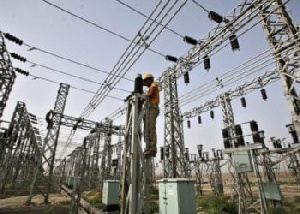 Government suspended the issuance of new licences for wholesale electricity supply
Government suspended the issuance of new licences for wholesale electricity supply
Whereas economies around the world are implementing policies aimed at catalysing the energy transition process, Ghana risks being left behind due to the ban on Power Purchase Agreements (PPAs).
The government suspended the issuance of new licences for wholesale electricity supply and permits for utility-scale grid-connected solar photovoltaic (PV) and wind power plants in 2017. The decision, according to the government, was taken to reduce the cost of excess power capacity for which the country pays US$500million a year.
Market watchers, including the Institute for Energy Security and the Chamber of Independent Power Producers, Bulk Consumers and Distributors, however, hold the view that the ban is stifling efforts to increase renewable energy penetration to an appreciable level.
Currently, renewable energy makes up about 1 percent of electricity generation. Government has set a 10 percent renewable energy target by 2030, having failed to achieve a similar goal in 2020.
However, the Chamber of Independent Power Producers thinks a more deliberate policy will be required if the country is to meet the 10 per cent target by 2030.
“A drive toward energy transition and the country’s renewable energy target will require the government’s deliberate decision to rescind the ban on signing new PPAs, particularly for the renewables,” says the Chamber’s Chief Executive Officer, Elikplim Apetorgbor.
He added that government will have to consider a policy that allows conventional power plants to amend their PPAs to invest in renewables – at least for 1 per cent of their installed capacities.
Apart from de-carbonisation, removal of the ban would contribute to diversifying Ghana’s energy mix and bring about cheaper and more efficient energy in line with the Sustainable Development Goals.
This is because while electricity tariffs from conventional generation sources will continue to rise, the cost of renewable energy – particularly solar and wind – is declining and becoming increasingly competitive alternatives for businesses.
“The reasons as put forward by the government to suspend the issuance of additional PPAs raises many concerns. A mere suspension of issuing new licences cannot be said to be a sustainable solution, as it will not force the existing licenced companies to develop and operationalise their projects. A comprehensive review of licences and projects on a case-by-case basis is commendable for purposes of recalling redundant licences and issuing new ones to companies with the resources and capacity to develop projects within the shortest possible period.
“The idea that Ghana pays over US$500million a year for unused electricity rather makes a strong case for the ban to be lifted from renewable energy power agreements, since renewables currently provide comparatively cheaper tariffs with technologies which promise to make renewable energy even cheaper going forward.
“The last decade has seen efficient renewable energy technologies consistently reducing the cost of renewable power. Investment into renewables in the last decade has also increased exponentially in response to the Paris Climate Accord and the United Nations (UN) sustainable development goals,” IES said in a statement.